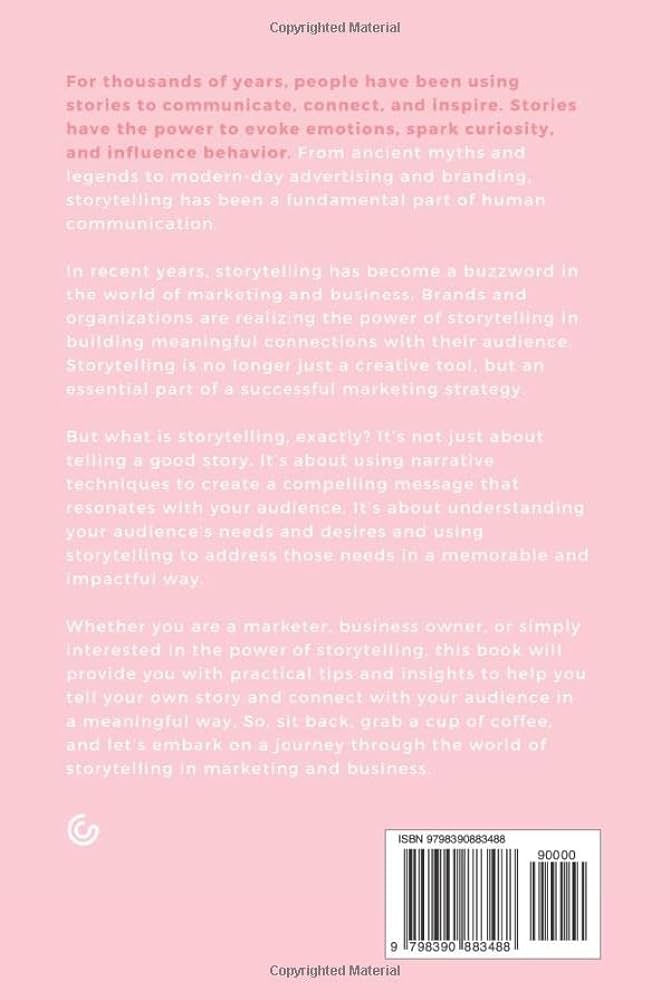Advanced Communication Skills to Master
Are you ready to take your communication skills to the next level? In today’s fast-paced world, having advanced communication skills is crucial for success in both personal and professional life. But what exactly does it mean to have advanced communication skills? Well, it’s all about being able to express yourself clearly, listen actively, and connect with others effectively.
Imagine being able to confidently articulate your ideas, persuade and influence others, and build strong relationships. Advanced communication skills can open up endless opportunities and help you stand out from the crowd. Whether you’re giving a presentation, participating in a group discussion, or simply having a conversation, these skills can make all the difference.
So, if you’re looking to enhance your ability to communicate effectively, you’re in the right place. In this article, we’ll explore the key elements of advanced communication skills, provide practical tips and techniques, and equip you with the tools you need to become a master communicator. Get ready to unlock your full potential and become a skilled communicator in no time! Let’s dive in!
Mastering effective communication skills is essential for success in today’s interconnected world. By improving your ability to convey ideas clearly and connect with others, you can enhance your personal and professional relationships. Develop advanced communication skills through active listening, empathizing with others, embracing nonverbal cues, practicing effective feedback, and adapting your communication style to different contexts. Constantly refine these skills to build stronger connections, resolve conflicts, and achieve your goals.

Unlocking Success: Mastering Advanced Communication Skills
Effective communication is the cornerstone of success in both personal and professional realms. While basic communication skills are essential, mastering advanced communication skills can truly elevate one’s ability to connect, persuade, and lead. In this article, we will delve into the intricacies of advanced communication skills, exploring various techniques and strategies that can be applied in a wide range of contexts. Whether you aspire to be a skilled negotiator, a charismatic public speaker, or a compassionate listener, honing your advanced communication skills will undoubtedly set you apart from the crowd.
1. The Power of Active Listening
In today’s fast-paced world, it’s easy to fall into the trap of passive listening – where we hear but don’t truly listen. Active listening goes beyond hearing words; it involves fully engaging with the speaker, understanding their perspective, and responding appropriately. To enhance your active listening skills, start by maintaining eye contact, nodding to show understanding, and asking open-ended questions to encourage further discussion. Avoid interrupting or imposing your own thoughts prematurely – instead, focus on truly understanding the speaker’s message before formulating a response. By practicing active listening, you’ll not only deepen your connections with others but also gain valuable insights and understanding.
Another strategy to cultivate active listening is to practice empathy. Put yourself in the speaker’s shoes, try to understand their emotions and experiences, and respond with compassion. Reflecting on what you’ve heard and summarizing it back to the speaker can also demonstrate your active engagement and ensure that you’ve understood their message accurately. Remember, active listening is not just a tool for effective communication – it is a powerful way to show respect, build trust, and create meaningful relationships.
Benefits of Active Listening:
- Enhanced understanding and empathy
- Improved personal relationships
- Increased productivity and collaboration
- Prevention of miscommunication and misunderstandings
2. The Art of Persuasion
In many spheres of life, from business negotiations to personal relationships, the ability to persuade others is a valuable skill. Persuasion involves presenting your ideas, opinions, or requests in a way that is compelling and influential. To become an adept persuader, it is crucial to understand your audience and tailor your message accordingly. Consider their motivations, needs, and values, and frame your arguments in a way that resonates with them. Use storytelling, logical reasoning, and evidence to support your claims and make your case more convincing.
When it comes to persuasion, it is essential to maintain an open mind and be receptive to others’ perspectives. This allows you to address counterarguments and objections effectively, demonstrating that you have considered multiple viewpoints. Active listening, as discussed earlier, plays a vital role in persuasion. By truly understanding the concerns and desires of your audience, you can refine your arguments and adapt your strategy to increase the likelihood of a positive response.
Tips for Mastering Persuasion:
- Understand your audience
- Build credibility through knowledge and expertise
- Use compelling evidence and logical reasoning
- Address counterarguments and objections
- Emphasize shared values and benefits
3. Nonverbal Communication: The Unspoken Language
When it comes to communication, words are just one piece of the puzzle. Nonverbal communication – including facial expressions, body language, and tone of voice – plays a significant role in conveying meaning and establishing rapport. In fact, research suggests that nonverbal cues can account for up to 93% of our overall communication.
To improve your nonverbal communication skills, start by cultivating self-awareness. Pay attention to your own body language and facial expressions, ensuring that they align with your intended message. Additionally, be mindful of others’ nonverbal cues, as they can provide valuable insights into their thoughts and feelings. Notice changes in posture, gestures, or facial expressions, and adjust your approach accordingly.
Remember that nonverbal cues can vary across different cultures, so it’s essential to develop cultural sensitivity. Educate yourself about the cultural norms and practices of individuals you interact with regularly to avoid misunderstandings or unintended offense. By consciously incorporating nonverbal communication into your interactions, you’ll be able to create a more nuanced and impactful communication style.
Tips for Effective Nonverbal Communication:
- Maintain eye contact, but don’t stare
- Use appropriate facial expressions to convey emotions
- Pay attention to posture and body positioning
- Adapt your tone of voice to match the message
- Be mindful of cultural differences in nonverbal cues
4. Conflict Resolution: Navigating Difficult Conversations
Inevitably, we encounter conflicts and disagreements in various aspects of life. Advanced communication skills are particularly crucial when it comes to navigating these difficult conversations and resolving conflicts amicably. One key aspect of conflict resolution is developing emotional intelligence – the ability to recognize and manage your emotions and those of others.
When faced with a conflict, take the time to acknowledge and understand your own emotions. This self-awareness will help you approach the conversation with a level head and avoid reacting impulsively. Actively listen to the other party, seeking to understand their perspective and underlying needs. Find areas of common ground and work towards finding mutually beneficial solutions.
Assertiveness is another essential skill in conflict resolution. Clearly and respectfully express your thoughts and concerns, using “I” statements to avoid sounding accusatory. Avoid aggressive or passive-aggressive communication styles, as they tend to escalate conflicts rather than resolve them. Ultimately, the goal of conflict resolution is to find a win-win outcome where both parties feel heard and their needs are met.
Benefits of Effective Conflict Resolution:
- Improved relationships and teamwork
- Reduced stress and tension
- Enhanced problem-solving skills
- Increased trust and cooperation
5. Overcoming Communication Barriers: Bridge the Gap
Communication barriers can hinder understanding and impede effective communication. Identifying and overcoming these barriers is essential for developing advanced communication skills. Some common barriers include cultural differences, language barriers, distractions, and technological limitations.
To overcome communication barriers, strive for clarity and simplicity in your message. Use concrete examples, visuals, or analogies to enhance understanding. Be patient and adapt your communication style to accommodate different individuals and situations. Active listening and empathy, as discussed earlier, can also help bridge communication gaps and foster a deeper connection.
When faced with language barriers, consider using translation tools, breaking down complex ideas into simpler terms, or seeking the assistance of a translator or interpreter. In a technology-driven world, it’s important to be aware of the limitations of virtual communication and find ways to mitigate any challenges that arise.
Tips for Overcoming Communication Barriers:
- Strive for clarity and simplicity in your message
- Use visual aids and concrete examples
- Adapt your communication style to accommodate different individuals
- Utilize translation tools or seek assistance when language barriers arise
- Be aware of the limitations of virtual communication and find ways to mitigate them
6. Communicating with Authenticity and Confidence
Authenticity and confidence are two indispensable elements of advanced communication skills. When you communicate authentically, you build trust and credibility, as well as create genuine connections. To communicate authentically, embrace vulnerability and be true to yourself. Avoid putting on a façade or hiding behind a persona – let your true personality shine through.
Confidence is a fundamental aspect of effective communication. It helps convey credibility and conviction, making your message more persuasive. To boost your confidence, practice your communication skills regularly – whether through public speaking, role-playing, or engaging in challenging conversations. Prepare thoroughly, know your subject matter, and anticipate potential questions or objections. Remember, confidence is a skill that can be developed with practice and experience.
Tips for Authentic and Confident Communication:
- Be true to yourself and embrace vulnerability
- Avoid putting on a façade or pretending to be someone you’re not
- Practice your communication skills regularly to build confidence
- Know your subject matter and be prepared
- Seek feedback and learn from each communication experience
Cultivating Advanced Communication Skills in Professional Settings
Effective communication skills are particularly critical in professional settings, where they can shape your career trajectory and contribute to your overall success. Let’s take a closer look at how advanced communication skills can be cultivated and utilized in specific professional contexts.
1. Leadership Communication: Inspiring Others
In a leadership position, effective communication is paramount to inspire and motivate your team. Advanced communication skills allow leaders to clearly articulate their vision, set expectations, and provide constructive feedback. By actively listening to team members and fostering an open-door policy, leaders can create an environment that encourages collaboration, trust, and innovation.
Tips for Leadership Communication:
- Establish clear goals and expectations
- Provide regular and constructive feedback
- Lead by example and communicate with authenticity
- Encourage open dialogue and collaboration
- Adapt your communication style to different team members
2. Business Presentations: Captivating Your Audience
Delivering impactful business presentations requires a blend of advanced communication skills. From structuring your presentation to using effective visual aids and delivery techniques, each aspect contributes to capturing your audience’s attention and conveying your message persuasively. By practicing confidence, maintaining eye contact, and using engaging storytelling techniques, you can leave a lasting impression on your colleagues, clients, or stakeholders.
Tips for Captivating Business Presentations:
- Plan and structure your presentation effectively
- Use visual aids to enhance understanding
- Practice your delivery and body language
- Engage the audience through storytelling
- Anticipate and address potential questions or objections
3. Negotiation Skills: Finding Win-Win Solutions
Effective negotiation involves advanced communication skills, as it requires the ability to understand others’ perspectives, advocate for your own interests, and find mutually beneficial solutions. Through active listening, clear articulation of your goals, and the ability to address conflicts constructively, you can navigate negotiations successfully and build strong partnerships.
Tips for Mastering Negotiation Skills:
- Prepare thoroughly and understand your objectives
- Focus on mutual interests and benefits
- Listen actively and seek to understand the other party’s perspective
- Communicate assertively and negotiate in good faith
- Look for creative solutions and win-win outcomes
Conclusion
Mastering advanced communication skills is a lifelong journey that requires practice, self-reflection, and continuous growth. By incorporating techniques such as active listening, persuasive communication, nonverbal cues, conflict resolution, overcoming barriers, and authentic confidence, you can unlock new opportunities for personal and professional success. These skills enable you to connect more deeply, influence others positively, and navigate challenging conversations with grace and empathy. Embrace the power of advanced communication skills and watch as your relationships flourish, your influence expands, and your achievements soar.
.Key Takeaways for Advanced Communication Skills:
Key Takeaways
- Active listening is a crucial aspect of advanced communication.
- Effective body language can enhance your communication skills.
- Being empathetic and understanding others’ perspectives fosters better communication.
- Using clear and concise language helps convey your message effectively.
- Practicing effective non-verbal communication techniques can improve your overall communication skills.
Frequently Asked Questions
Welcome to our Frequently Asked Questions section on advanced communication skills. Here, we will address common queries related to improving your communication abilities in various settings. Whether you are aiming to excel in public speaking, enhance your interpersonal skills, or become a better listener, we’ve got you covered!
1. How can I improve my public speaking skills?
To enhance your public speaking skills, start by preparing and practicing your speech beforehand. Develop a clear and concise message, structure your speech logically, and use visual aids to support your points. It’s also important to engage with your audience, maintain good posture, and project your voice confidently. Gradually challenging yourself with more speaking opportunities will help boost your confidence and further develop your skills. Remember, practice makes perfect!
Additionally, consider joining a public speaking group or taking a course on public speaking. These platforms provide a supportive environment to practice and receive constructive feedback from peers and experts. By continuously seeking opportunities to speak in public and embracing feedback, you’ll steadily improve your public speaking abilities.
2. How can I enhance my interpersonal communication skills?
To enhance your interpersonal communication skills, focus on active listening. This means being fully present in conversations, paying attention to the speaker, and responding appropriately. Avoid interrupting, and ask clarifying questions to show genuine interest. Nonverbal cues, such as maintaining eye contact, nodding, and using appropriate facial expressions, also play a significant role in effective interpersonal communication.
Additionally, practice empathy and emotional intelligence. Try to understand others’ perspectives and emotions, and respond in a respectful and compassionate manner. Developing effective communication skills also involves being aware of your own communication style and adapting it to fit different situations. By practicing active listening, empathy, and self-awareness, you can significantly enhance your interpersonal communication skills.
3. How can I become a better listener?
Becoming a better listener requires conscious effort and practice. First, provide your undivided attention to the speaker. Avoid distractions and truly listen to what they are saying. Show your engagement by maintaining eye contact and using positive body language. Furthermore, avoid interrupting and withholding judgment until the speaker has finished expressing their thoughts or feelings.
Another essential aspect of active listening is asking open-ended questions to encourage the speaker to elaborate on their ideas. Paraphrasing what you’ve heard in your own words also helps to demonstrate understanding. By honing these skills and being present in each conversation, you can greatly improve your listening abilities.
4. How can I communicate effectively in a group setting?
To communicate effectively in a group setting, start by actively participating. Raise relevant points and contribute constructively to the discussion. It’s important to give others an opportunity to speak by practicing turn-taking and avoiding monopolizing the conversation.
Additionally, pay attention to the dynamics within the group and adapt your communication style accordingly. Be respectful of others’ opinions even if you disagree, and strive to find common ground. Effective communication in a group also involves being organized and communicating your ideas clearly and concisely. By being an engaged participant, adapting to the group dynamics, and articulating your thoughts effectively, you can communicate successfully in a group setting.
5. How can I refine my written communication skills?
To refine your written communication skills, start by organizing your thoughts before you begin writing. Outline your main points and ensure they flow logically. Use clear and concise language, and be mindful of grammar and punctuation.
Proofreading is crucial to catch any errors or inconsistencies in your writing. Reading your written work aloud can also help identify any awkward sentence structures or areas that need improvement. Seeking feedback from others can provide valuable insights and suggestions for improvement. By practicing these strategies and making a conscious effort to refine your writing, your written communication skills will continue to improve over time.
Think Fast, Talk Smart: Communication Techniques
Summary
Being able to communicate effectively is really important for getting your ideas across to others. Advanced communication skills can help you express yourself clearly, listen actively, and understand different perspectives. These skills can also improve your relationships and help you succeed in many areas of life, like school, work, and personal interactions. Practice makes perfect, so don’t be afraid to work on your communication skills and keep improving! With time and effort, you’ll become a great communicator.


